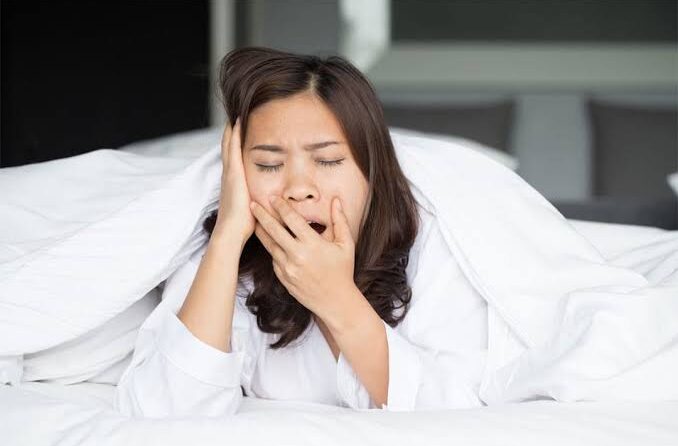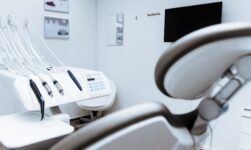
Many people wake up tired all the time. Sometimes waking up tired is not usually the cause of anxiety.
However, waking up constantly tired may be a sign of sleep deprivation or health. This is especially true if a person continues to feel tired all day long.
This article outlines some of the common causes of fatigue. It also offers alternative therapies and home remedies that can help alleviate the problem.
Causes
Sleep inertia is a possible cause for waking up tired.
Several factors can contribute to fatigue when you wake up. The following sections will highlight some of these.
Sleep inertia
The term sleep inertia refers to the common mental and motor impairment that occurs immediately after waking up.
Insomnia occurs when a person wakes up suddenly from a deep, deep sleep. As a result, parts of their brain are not yet fully awake.
The brain stem, which controls basic functions, works immediately after waking up. The prefrontal cortex, which is involved in decision-making and self-control, can take up to 30 minutes to catch.
Other symptoms of sleep inertia include:
drowsiness or confusion
difficulty concentrating
making bad decisions
the difficulty of doing good motor work
Sleep hygiene habits
The National Sleep Foundation defines sleep hygiene as a list of “habits and practices needed to have good nighttime sleep and full daytime vigilance.”
Poor sleep can lead to poor sleep. Some examples of poor sleep hygiene habits include:
lack of a regular sleep routine, which includes regular sleep and wake-up times
taking a nap during the day for more than 30 minutes
viewing phone or computer screens within 2 hours of sleep
having a very hot, very bright, or very noisy bedroom
having a loose mattress or pillow
Unhelpful lifestyle and dietary factors
In addition to poor sleep hygiene, excessive lifestyle and eating habits can cause a person to wake up tired. These include:
Inadequate exercise: Regular daily exercise can promote a good night’s sleep. However, people should avoid strenuous exercise at bedtime, as this increases alertness and may delay sleep.
Insufficient light from natural light: People who do not go outside during the day may not be able to be exposed to natural sunlight. Exposure to the sun helps control the body’s internal clock.
Excessive urination at night, or nocturia: Waking up all night to the toilet can cause people to wake up tired in the morning. In some cases, nocturia may indicate a lower health condition. In some cases, it may be a sign that a person is eating too much fluid before going to bed.
Eating sleep disorders: Eating rich, fatty, or spicy foods near bedtime can cause digestive problems in some people. These problems can affect both the quantity and quality of a person’s sleep.
Caffeine before going to bed: Caffeine is a that stimulates a person’s central nervous system. Those who eat chocolate or drink caffeinated beverages near bedtime may have difficulty sleeping.
Drinking before bedtime: Alcohol is sleep apnea that can put a person to sleep faster. However, it also prevents a person from falling asleep with rapid eye movement, which leads to lower sleep quality.
Sleep disorders
Some people find that they continue to wake up tired even after experiencing poor sleep habits and poor quality of life. This may indicate a hidden sleep disorder.
Those who suspect that they may have a sleep disorder should consult a physician for diagnosis and treatment.
The sections below highlight some of the most common sleep disorders.
Sleep apnea
Sleep apnea is a serious sleep disorder that causes shortness of breath during sleep.
Other possible symptoms of sleep apnea include:
snoring
shortness of breath during sleep
waking up with a dry mouth
morning headache
feeling tired after sleeping all night
People who think they may have sleep apnea should consult their doctor. Medical treatment can help prevent heart problems and other complications that can occur in this condition.
Insomnia
Insomnia is a sleep disorder in which a person has difficulty falling or falling asleep. People with insomnia may be:
waking up every night
waking up too early and having trouble sleeping again
fatigue in waking
annoyance during the day
a state of depression
low energy levels
Restless legs syndrome
Restless Legs Syndrome is a sleep disorder characterized by an uncontrollable urge to move the legs. This craving is usually caused by an uncomfortable crawling or a tingling sensation in the feet, calves, or thighs.
Occasional obstruction
Periodic Limb Movement Disorder (PLMD) occurs when a person moves his limbs from time to time during sleep.
PLMD mainly affects the lower limbs, causing muscle spasms, squatting movements, or stretching of the upper legs. This repetitive movement of the organs occurs every 20-40 seconds.
PLMD disrupts sleep and leads to morning fatigue that may persist throughout the day.
Bruxism
Bruxism is a medical term that refers to grinding or clenching teeth during sleep. It is a type of sleep-related movement disorder.
If bruxism is severe, a person may have one or more of the following symptoms:
head
tooth decay
jaw disorders
Mild conditions of bruxism may not cause any significant symptoms other than morning fatigue.
Symptoms associated with fatigue
People who develop symptoms along with morning or afternoon fatigue may have health problems that interfere with their sleep.
Treating the underlying condition should improve the amount and quality of sleep a person receives.
The sections below outline some of the conditions that may affect sleep and wakefulness.






